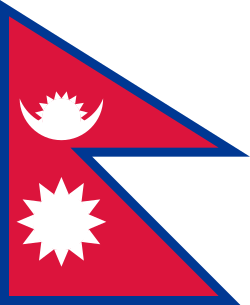| Nepal at the 1964 Summer Olympics | |
|---|---|
 | |
| IOC code | NEP |
| NOC | Nepal Olympic Committee |
| in Tokyo | |
| Competitors | 6 in 2 sports |
| Flag bearer | Ram Prasad Gurung [1] |
| Medals |
|
| Summer Olympics appearances (overview) | |
Nepal competed in the Summer Olympic Games for the first time at the 1964 Summer Olympics in Tokyo, Japan.